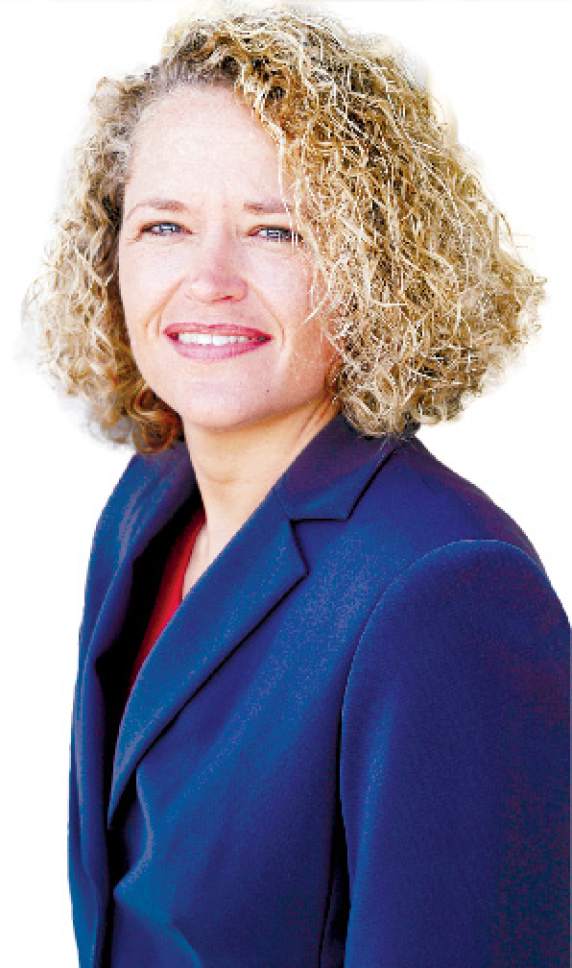This is an archived article that was published on sltrib.com in 2017, and information in the article may be outdated. It is provided only for personal research purposes and may not be reprinted.
In recent weeks, the nation's mayors have mobilized like never before around the urgency to address climate change.
Just hours after the Trump administration withdrew the United States from the Paris Climate Agreement on June 1, I joined 60 other U.S. mayors in a statement supporting the goals and initiatives of the abandoned accord. To date, 331 mayors have now signed on.
Hundreds of mayors want the record to be clear: When it comes to addressing climate change and preserving our planet for future generations, we are still in. Of course, we will continue to work toward federal government buy-in on policies that shrink our carbon footprint and expand our use of renewable energy. Meanwhile, we can make great progress on climate change in our own cities, counties, and towns.
The topic of global warming was front and center at last month's meeting of the U.S. Conference of Mayors in Miami. As a co-chair of the group Mayors for 100% Clean Energy, I helped drive the adoption of a historic resolution that establishes support from the country's mayors for the goal of moving to 100 percent clean and renewable energy nationwide by 2035.
I strongly believe this goal is achievable. Since taking office 18 months ago, I have committed Salt Lake City to robust but realistic targets of transitioning from fossil-fueled energy to clean renewables, such as solar, wind, and geothermal.
Our city, partnering with our electricity supplier Rocky Mountain Power (RMP), is committed to powering 50 percent of municipal operations with renewables by 2020. We have set another goal of transitioning the entire community's electricity supply to 100 percent clean energy by 2032, followed by an overall reduction of community greenhouse gas emissions 80 percent by 2040.
These goals are supported by our city's unprecedented franchise agreement with RMP, which we will revisit in five years to make sure the company is on target for these measureable objectives. Our relationship with RMP on this issue has been mutually respectful and collaborative. Salt Lake City Corporation is the largest customer in RMP's Solar Subscriber program, and we encourage all businesses and residents to sign up and reap the benefits of cleaner and more cost-efficient electricity.
Salt Lake City is leading on these efforts, but we can't do it alone.
On a national level, the non-profit, non-partisan Citizens Climate Lobby (CCL) has proposed the U.S. adopt a carbon fee and dividend program. A steadily rising fee would be imposed on the CO2 equivalent emissions of fossil fuels, imposed on the originating mine, well, or port of entry. In turn, those fees, minus administrative costs, would return to households.
By accounting for the true cost to our environment of burning fossil fuels, we could encourage a faster transition to renewables, and a big step in turning back global warming.
We need to stop drawing political lines around climate change. One example worth noting is the Climate Solutions Caucus, a bipartisan group of U.S. House members, which Utah Republican Rep. Mia Love joined this year. The caucus is dedicated to fact-based discussions on climate change and in finding ways to address it that won't harm the economy. The caucus embraces carbon fee and dividend. I encourage the rest of Utah's congressional delegation to study and support the concept, as well.
In Salt Lake City over the past year we have added 22 more electric vehicle charging stations, created an energy use benchmarking program for buildings, and earmarked $100,000 in the FY18 budget to help with costs of engineering and permitting for a new solar farm planned by Rocky Mountain Power. When the switch is flipped on the farm in the near future, our city will be well on its way to meeting our first clean energy goal.
Now more than ever, local leaders must meet the issue of climate change head-on. Rapid leaps in technology are driving the move to cleaner energy, and are creating market-based solutions, including job creation, for our toughest environmental challenges.
It really comes down to this: A rapidly warming planet can't wait for solutions. And in Salt Lake City, neither can we.
Jackie Biskupski is mayor of Salt Lake City.



